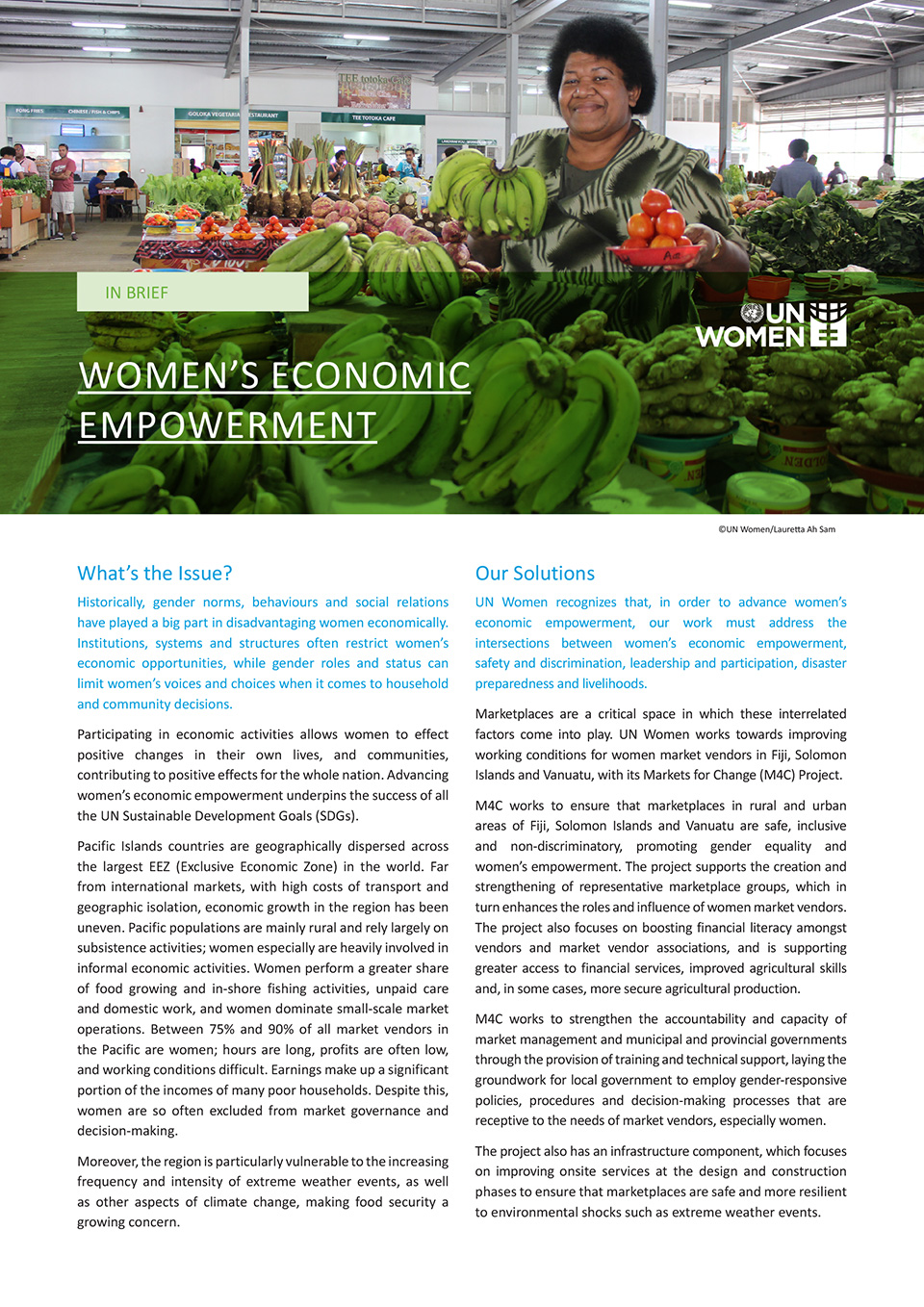
Women’s Economic Empowerment

Historically, gender norms, behaviours and social relations have played a big part in disadvantaging women economically. Institutions, systems and structures often restrict women’s economic opportunities, while gender roles and status can limit women’s voices and choices when it comes to household and community decisions.
Participating in economic activities allows women to effect positive changes in their own lives, and communities, contributing to positive effects for the whole nation. Advancing women’s economic empowerment underpins the success of all the UN Sustainable Development Goals (SDGs).
Pacific Islands countries are geographically dispersed across the largest EEZ (Exclusive Economic Zone) in the world. Far from international markets, with high costs of transport and geographic isolation, economic growth in the region has been uneven. Pacific populations are mainly rural and rely largely on subsistence activities; women especially are heavily involved in informal economic activities. Women perform a greater share of food growing and in-shore fishing activities, unpaid care and domestic work, and women dominate small-scale market operations. Between 75% and 90% of all market vendors in the Pacific are women; hours are long, profits are often low, and working conditions difficult. Earnings make up a significant portion of the incomes of many poor households. Despite this, women are so often excluded from market governance and decision-making.
Moreover, the region is particularly vulnerable to the increasing frequency and intensity of extreme weather events, as well as other aspects of climate change, making food security a growing concern.
UN Women recognizes that, in order to advance women’s economic empowerment, our work must address the intersections between women’s economic empowerment, safety and discrimination, leadership and participation, disaster preparedness and livelihoods.